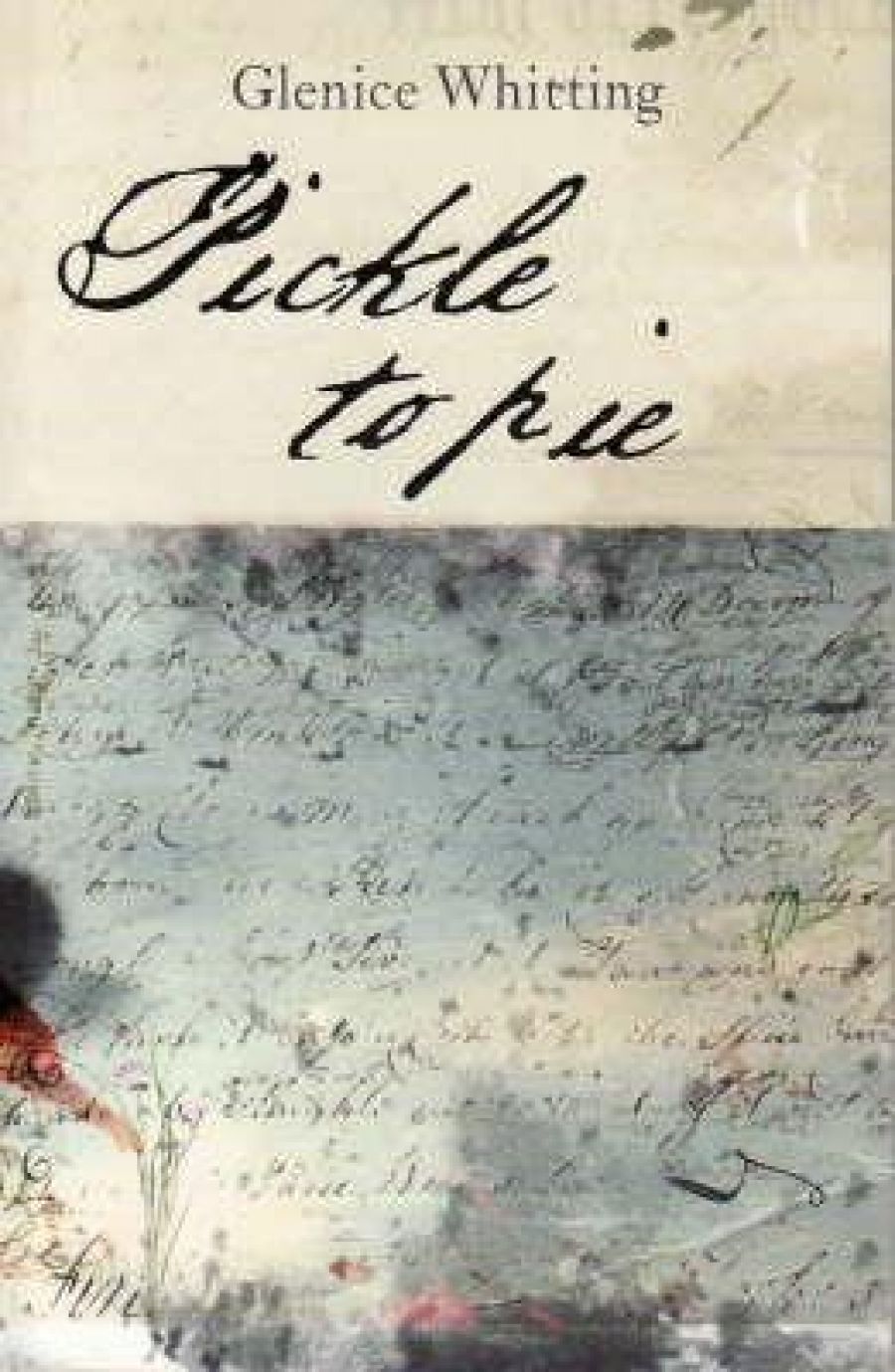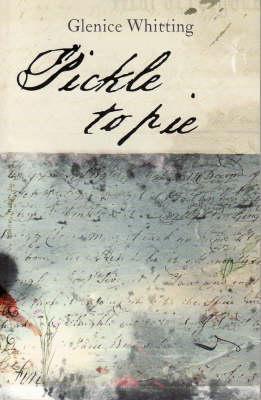
- Free Article: No
- Contents Category: Fiction
- Custom Article Title: Three books
- Review Article: Yes
- Article Title: Three books
- Online Only: No
- Custom Highlight Text:
In Glenice Whitting’s début novel, a dying man, Frederick, recalls his childhood in Footscray from before World War I to the end of his life at the close of the twentieth century. The theme is the split identity of an Australian-born man who has strong connections to his German heritage. His formative influence is his charismatic grandmother who raises him when he is rejected by his mother. This remains the centre of his personality even when, as he grows older, he craves acceptance as an Australian. Frederick is more like a first-generation immigrant than a second, especially as the grandmother names him Frederick Joseph Heinrich Frank Fritschenburg, a name destined to become a burden in his childhood as Australia succumbs to rabid anti-German propaganda during World War I. A similar predicament impels the family to change their name to Fraser.
- Book 1 Title: Pickle to Pie
- Book 1 Biblio: Hira Press, $26.95 pb, 246 pp
- Book 1 Cover Small (400 x 600):

- Book 1 Cover (800 x 1200):

- Book 2 Title: The Whisper of Leaves
- Book 2 Biblio: Arena, $29.95 pb, 416 pp
- Book 2 Cover Small (400 x 600):

- Book 2 Cover (800 x 1200):

- Book 3 Title: Lilia's Secret
- Book 3 Biblio: Vintage, $32.95 pb, 334 pp
- Book 3 Cover Small (400 x 600):

- Book 3 Cover (800 x 1200):

This is a disconcerting mistake from an author writing a fictional history of Australia in the twentieth century with a particular focus upon the world wars against Germany. Otherwise, Pickle to Pie is enjoyable and informative.
In the post-Potter world of fantasy fiction, every publisher is looking for the next J.K Rowling to inspire a cultish readership. Allen & Unwin has begun its quest with the launch of the Arena imprint, The Whisper of Leaves – Book 1 in the Kira Chronicles being the first odyssey. Perhaps with a changing of the guard in mind, the first Kira title was released to coincide with the final Potter book. Although both novels share a fantasy root, they are very different branches of the genre.
Among the forest-dwelling Tremen clan, Kira is a great healer, despite her father’s disapproval of her quasisupernatural skills. The peaceful herbgathering and healing existence of the Tremen is disturbed by the Shargh, a nearby warrior people fearful of the poetic prophecy that the goldeneyed Kira will destroy their civilisation. Battles begin, and while Kira’s healing is tested she gains respect for Kest, a young Tremen charged to serve and protect. Will the herb prove mightier·than the sword?
First-time author K.S. Nikakis establishes a detailed world for her characters, especially with the flora and fauna being key to the healing of her Druid-like characters. But plot is sidelined by extensive detail. Focusing on the internal politicking of the Tremen and the Shargh, for example, obscures more intriguing plots and characters. Beyond the well-realised Kira, several characters are not so much killed off as shrugged off before readers can engage with them.
Unlike most multi-volume sagas, sub-plots in The Whisper of Leaves remain unresolved, with a cliffhanger ending that overtly points to the next book. An overarching narrative across several books creates a dedicated readership, but without resolving smaller stories here, readers are left unsatisfied. Like the opening moves of a game of chess, The Whisper of Leaves moves pieces into place but only suggests strategies for a later game.
Journalist Erina Reddan has loosely based her first novel on the legend surrounding her husband’s grandmother, who was suspected of killing her six husbands. This macabre but intriguing premise leads to an exploration of the family stories we tell ourselves and their effect on us.
The novel, set in Australia, Boston and Mexico, focuses on two very different lost souls searching for meaning in their lives. Sydneysider Maddy lives in passionate domestic bliss with her Mexican husband, Andres. Beneath the surface of her happy life, though, burn painful childhood memories. One moonlit night, Andres murmurs sweet nothings about wanting a baby, prompting Maddy to leap from the bed. Implausibly, she then puts distance between herself and her husband by fleeing to his home country on a fictional business trip, where she obsessively follows the trail of his mysterious grandmother, Lilia.
Meanwhile, Bostonian Bill Bixton, former head of a large company, is not coping with retirement. Bill has built his fortune to prove himself to his long-dead father, who abandoned the family for a mysterious Mexican woman (Lilia), leaving young Bill with an inability to love. Like Maddy, Bill spontaneously decides to go to Mexico to find himself – and answers about Lilia.
The characters in Lilia’s Secret are shallowly drawn; long on cliche and short on detail. The dialogue is often stilted, the descriptions lazy, the metaphors laboured. Of the three settings, only the Australian bush of Maddie’s childhood and her Sydney home are plausible. There is nothing to differentiate Bill’s Boston from anywhere else in the world, and while both Mexico City and Lilia’s village are characterised by attempts at atmosphere (pollution, tortillas, heat, tequila), they feel about as genuine as a television advertisement for taco kits. Erina Reddan draws the skeleton of a fascinating tale, but fails to satisfyingly flesh it out.


Comments powered by CComment